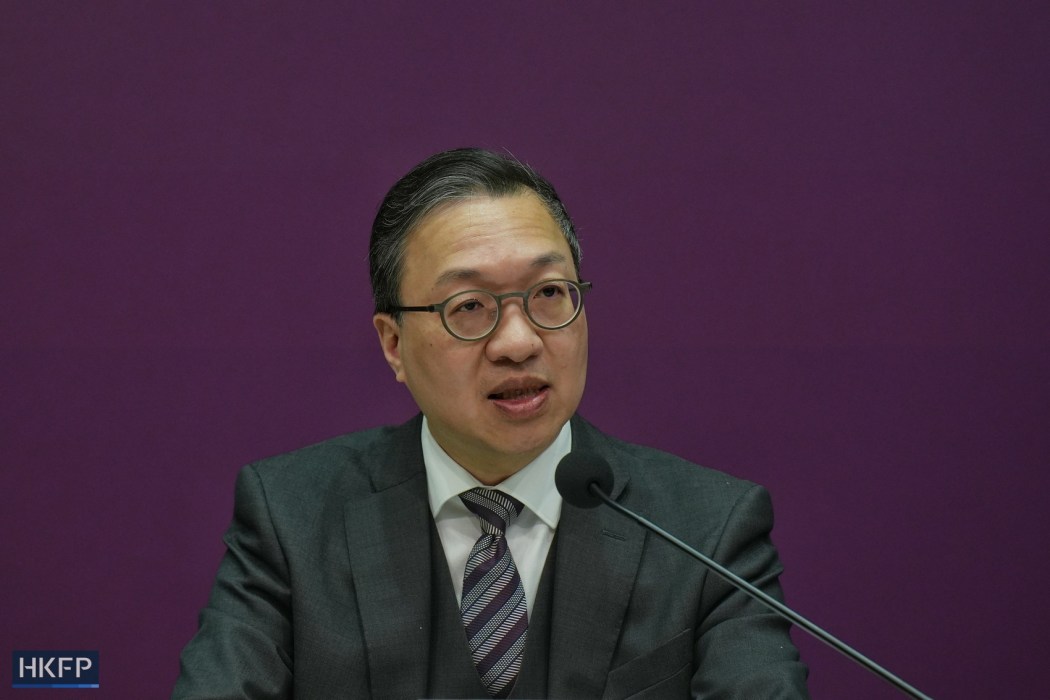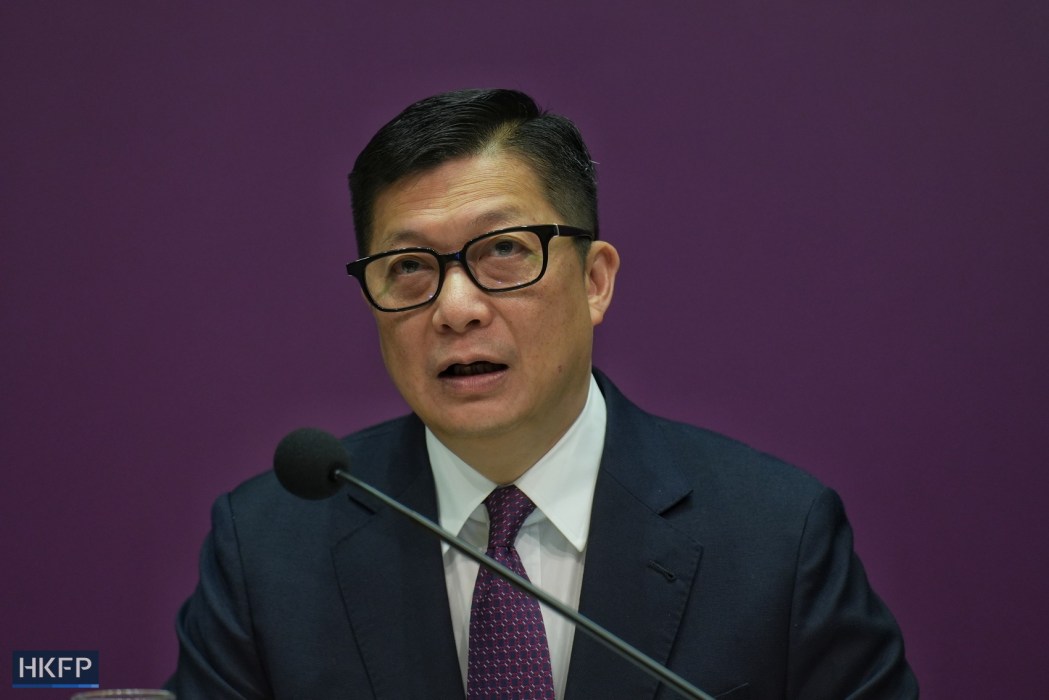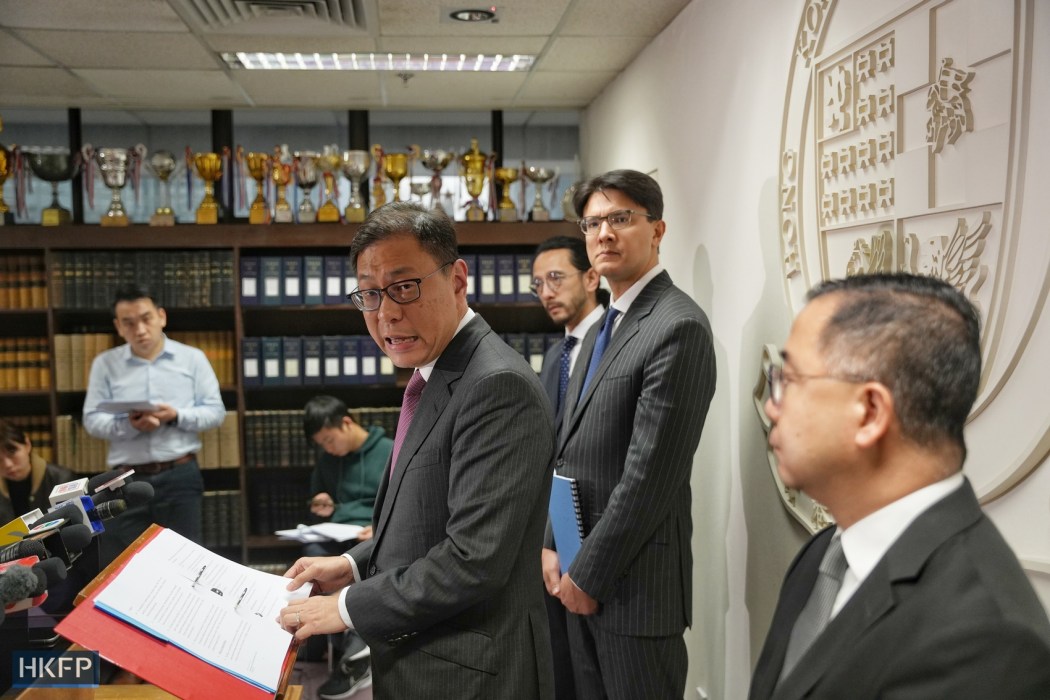Hong Kong officials have pushed back against public suggestions that some popular social media platforms and messaging apps should be “banned” under a proposed new security legislation, saying they had “absolutely no intention” in doing so.

Secretary for Justice Paul Lam on Wednesday said authorities had no plan to prohibit social media platforms from operating in Hong Kong, after some residents had made the suggestion that “websites such as Facebook and YouTube should be removed from the Hong Kong market.”
Lam was addressing lawmakers during a panel on the legislation of the new security law, known as the Basic Law Article 23, when the suggestion came into the spotlight.
Authorities said a one-month consultation period for the legislation which ended last Wednesday had drawn over 13,000 submissions, of which about 97 per cent were supportive of the proposed law, which targets five areas of crimes including theft of state secrets and external interference.
In a summary of public views submitted to the legislature, one suggestion submitted to the government involved banning messaging apps Telegram and Signal, saying they “have become a hotbed of crime… for co-ordination of activities, dissemination of seditious information and so forth.”

The government said in the document that it had noted the suggestions without indicating a stance on them.
Regina Ip, chairperson of the pro-Beijing New People’s Party and a top government advisor, urged the government to clearly explain its response to the suggestions during Wednesday’s panel, citing a Bloomberg article that highlighted the matter, which Ip accused of “scaremongering.”
“I can firmly say that we have absolutely no intention to ban any social media,” Lam said in Cantonese.
“Social media is just a tool. We are only targeting the people who utilise, abuse, or misuse the tools to disseminate speech that endangers national security,” he said. “We are targeting the content, the people who make such speeches, instead of social media platforms.”

He said the idea that Hong Kong would ban social media platforms “did not sound reasonable at all” and urged residents to focus on discussing the details of the legislation.
Speaking in the same panel, Secretary for Security Chris Tang also accused Bloomberg’s report of taking words out of context by highlighting one suggestion among many in the summary.
“There are numerous suggestions and we could not have possibly accepted all of them. We have to view them holistically, in accordance with our legislative purpose,” Tang added in Cantonese.
Public interest defence
Separately, Lam said that the city’s legal profession had submitted different views on whether the proposed legislation should include a “public interest defence” for offences relating to “unlawful disclosure of state secrets”.
The Hong Kong Bar Association and the Law Society of Hong Kong, two major professional bodies for the city’s legal professionals, had earlier argued that people disclosing state information in the public interest should be able to invoke such a defence to be exempted from the offence.

But Lam said there were those in the legal profession who said the inclusion of a public interest defence would create “loopholes and uncertainty,” and that it could be left to the discretion of the prosecution to not lay a charge in cases involving public interest.
He said that the government was considering the proposals, but that even if such a defence is included, the threshold of proving an overriding public interest above national security would be “extremely high” and the burden of proof would be borne by the defendants.
Article 23 stands apart from the Beijing-imposed security law, which criminalises secession, subversion, foreign collusion and terrorism.

While the previous legislative attempt of Article 23 in 2003 failed after an estimated 500,000 people took to the street in protests, authorities have vowed to complete its legislation within this year, saying it was Hong Kong’s “constitutional duty.”
Pro-democracy advocates – including one of the few remaining opposition parties the League of Social Democrats – fear it could have a negative effect on civil liberties, but authorities maintained that the “majority” of public opinion had supported the legislation.
Support HKFP | Policies & Ethics | Error/typo? | Contact Us | Newsletter | Transparency & Annual Report | Apps
Help safeguard press freedom & keep HKFP free for all readers by supporting our team
























